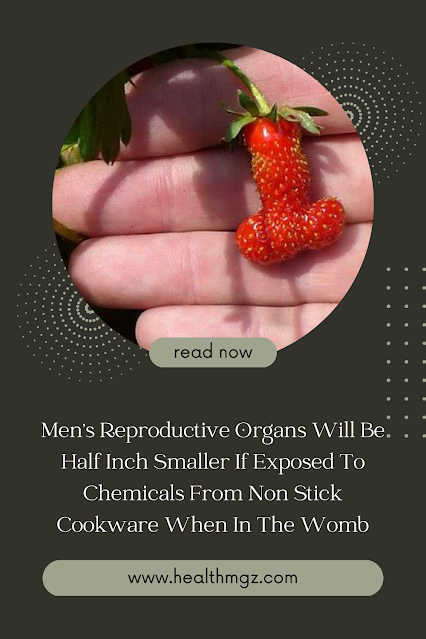Recent research has suggested that exposure to chemicals from non-stick cookware during pregnancy can have a significant impact on the reproductive health of male babies. The study, conducted by the University of Padua in Italy, found that men exposed to these chemicals in the womb had reproductive organs that were half an inch smaller than those who were not exposed.
The chemicals in question are known as perfluoroalkyl substances (PFAS), which are commonly found in non-stick cookware, stain-resistant fabrics, and food packaging. PFAS have been linked to a range of health problems, including cancer, thyroid disease, and reproductive issues.
The study analyzed data from 383 male babies who were born to women living in the Veneto region of Italy between 1978 and 1991. The researchers measured the length and width of the babies’ genitals at birth and then compared this data to the levels of PFAS found in the mothers’ blood during pregnancy.
The results showed a clear correlation between exposure to PFAS and reduced penis length and testicular volume. The researchers estimate that a 50% increase in PFAS exposure could lead to a reduction in penis length of approximately 0.4 centimeters (or 0.16 inches) and a reduction in testicular volume of approximately 12.5%.
The study’s lead author, Dr. Andrea Di Nisio, noted that the effects of PFAS exposure on male reproductive health are particularly concerning given the ongoing decline in sperm count and quality in many parts of the world.
“The finding that prenatal exposure to PFAS is associated with reduced genital size in male newborns has important public health implications,” said Dr. Di Nisio. “We know that small penis size and poor testicular development are associated with a range of adverse outcomes, including infertility, testicular cancer, and reduced quality of life.”
The study adds to a growing body of research on the harmful effects of PFAS on human health. The chemicals are known to accumulate in the body over time, and exposure has been linked to a range of health problems, including cancer, thyroid disease, and immune system disorders.
While more research is needed to fully understand the impact of PFAS exposure on male reproductive health, the study’s authors say that the findings highlight the need for greater regulation of these chemicals.
“Given the potential long-term effects of prenatal exposure to PFAS, our findings underscore the urgent need to reduce human exposure to these chemicals,” said Dr. Di Nisio. “This can only be achieved through strong regulation of PFAS use and production, as well as improved monitoring of their presence in the environment and human population.”
In conclusion, exposure to PFAS chemicals from non-stick cookware during pregnancy can have a significant impact on male reproductive health, leading to smaller genital size and reduced testicular volume. This research highlights the need for greater regulation of these chemicals to protect public health.

